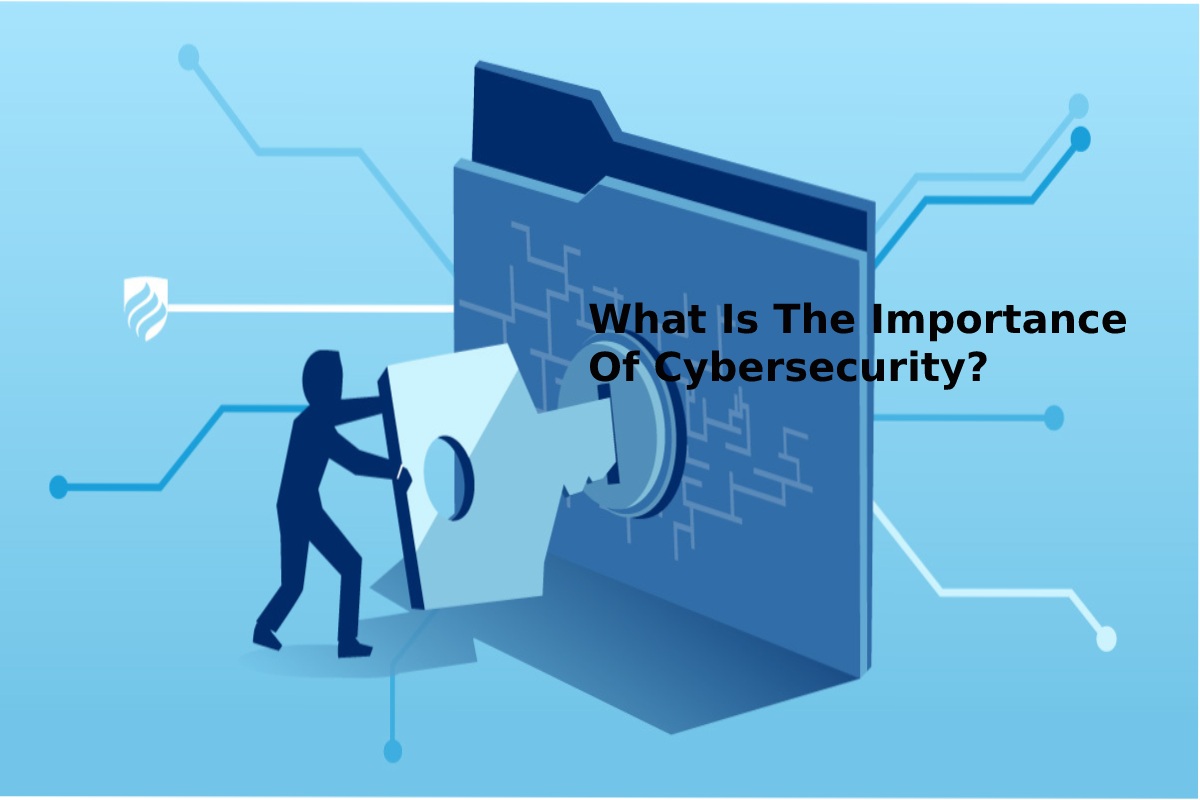Table of Contents
Introduction
Cybersecurity is important because it protects all sorts of data from theft and loss.
Cybersecurity began through the advanced research projects agency (Arpanet) network In 1972, its Importance lies in the following:
Protect Sensitive Information

Cybersecurity helps repel theft attacks using electronic defense software, prevent the possibility of unauthorized use of data and cause harm. Avoid attempts of extortion that harm the individual
Maintains the community entity by protecting its Information about financial services, hospitals, other health care institutions, power plants, etc.
Tackling Viruses And Malware Cybersecurity
helps protect organizations and companies from malware attacks aimed at fraud, phishing, theft of personal data, and intellectual property, which cause significant damage that companies cannot fix, including malicious encrypted ransomware.
Cybersecurity is defined as the process of protecting systems, networks, computers, software from all kinds of digital and electronic attacks and preventing access to data,
Cybersecurity protects computer systems from viruses that spread significantly and lead to severe problems, such as destructive files and data inside them, and damaging computer systems, causing significant damage to the business that relies on these systems.
Defending Information to Data Breach Attacks
Cybersecurity helps companies and organizations protect and protect them against data breach attacks, as organi2024-03-28zations and companies are easy targets for cybercriminals.
Because of their use of cloud services storage of their personal and sensitive Information, most cloud services, especially those with poor configuration, are the target of attacks by many sophisticated cybercriminals.
Reducing Cybercrime
Cybersecurity helps reduce cybercrime activities, which will increase dramatically and rapidly over time due to the tremendous technological development that links a large number of devices connected to the world’s network, which could reach about 21.1 billion in 2021
Saving Corporate and Institutional Funds
Cybersecurity provides companies and institutions with large amounts of money, with abuse attacks increasing sharply for financial Information.
Intellectual property information, health records, and business data, with an average cost of about $13 million to combat these crimes for an organization.
Hence, paying a small amount to cybersecurity is preferable to protect Information for these crimes and their high cost.
Websites Gain Credibility
cybersecurity protects online platforms, such as websites, computers from the risk of cyberattacks that make them difficult to access.
It causes significant damage to their reputation.
So cybersecurity enhances the credibility of access to these sites and protects customers from any cyber criminals.
maintaining the reputation of banks and companies
Banks that do not have a secure and robust protection system expose to many threats that may harm them and the security of their customers.
It leads to a lack of trust between them and their customers.
Therefore, it is necessary to have a strong cybersecurity team to protect their Information and guide their customers
To inform them of safe ways to protect their money. And also, data from penetration.
Maintaining A High Degree of Integrity and Confidence
The use of cybersecurity protection systems by banks and any financial sector, and continuous security monitoring of their plans.
Enhance their customers’ confidence in them and positively affect their reputation.
If their customers’ data is violating or stolen, 80% of customers will avoid using any business in the future. Eighty-five% of these customers will tell others about their experience, according to Security Magazine.
Therefore, It negatively affects the bank’s reputation and reduces its integrity and customer confidence.
Avoid Non-Compliance Penalties
Banks, like any other organization, need to abide by a range of rules and laws requiring them to use a secure and robust cybersecurity team to deal with threats to them, and ensure the integrity of their customer’s data, as their failure to comply with these laws refers to the penalty of non-compliance.
Many banks have been subject to non-compliance penalties. And also, have paid fines of millions for non-compliance.
Keep Customer Data From Hacking and Theft Cybersecurity
Maintains customers’ banking services and protects their data from violation, which may be defrauded by cybercriminals, which may be used in several crimes cases, causing serious concern and fear for the customer not to lose their data without cybersecurity.
The customer will be forced to undergo legal proceedings in data loss to prevent any possible damage. Banks must address the situation by canceling the cards and dealing with all customer payment transactions.
Therefore, in that case, it will never be recovering because of the wide distribution it exposes to by being sold on the black market by cybercriminals for use in hackers and other schemes.
So banks must use cybersecurity security systems to protect their networks. And also, their customers.
Preventing Financial Losses
banks are subject to customer data breach attacks, which cause money to be lost, as it is difficult to recover money, and recovery from this problem may take a long time, resulting in damage to the reputation of banks. And also, pressures on customers.
Banks need to protect their data from abuse and penetration, help cybersecurity implement an electronic risk management plan that threatens banks’ financial networks. And also, save customer funds.


